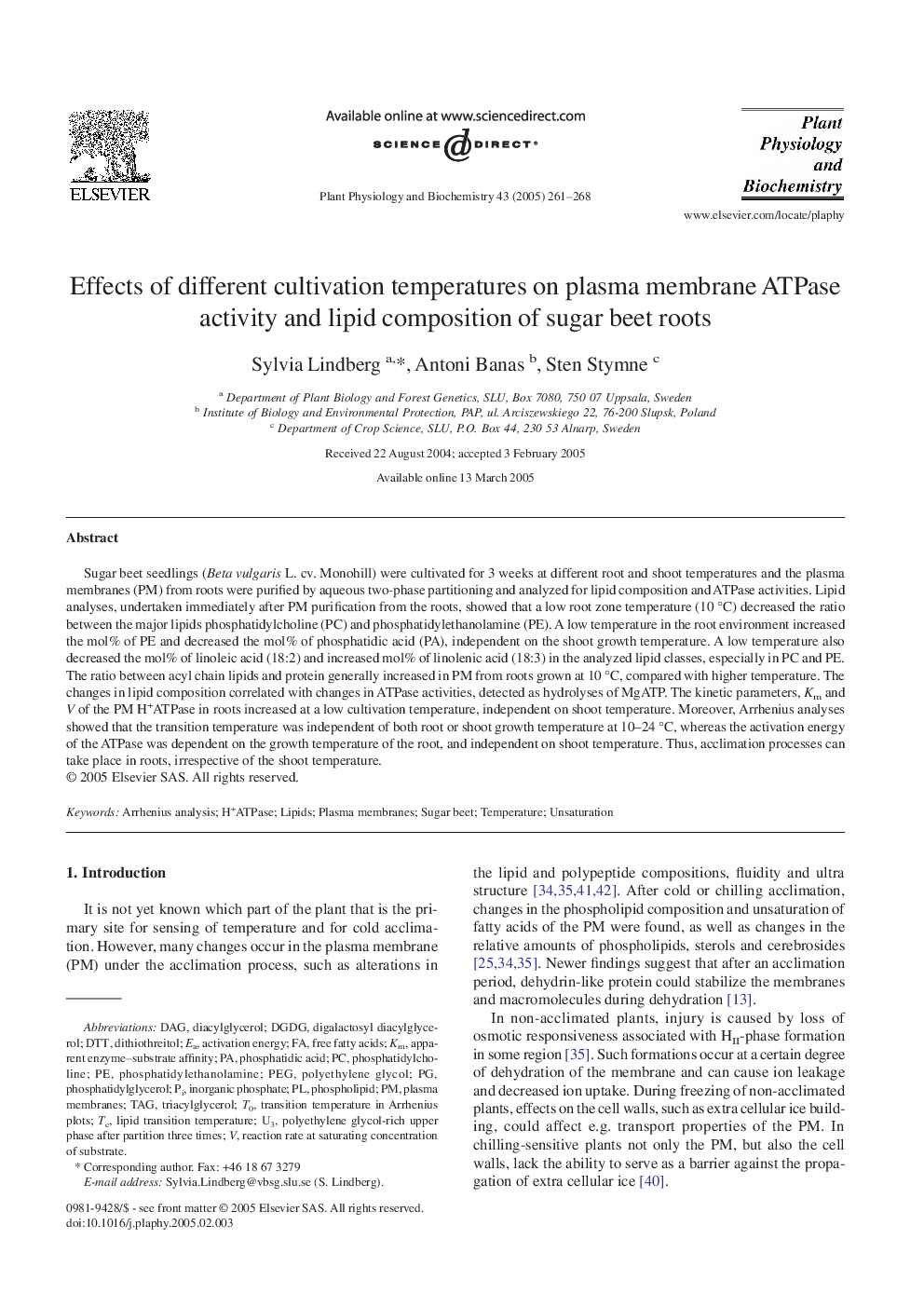| Article ID | Journal | Published Year | Pages | File Type |
|---|---|---|---|---|
| 10840156 | Plant Physiology and Biochemistry | 2005 | 8 Pages |
Abstract
Sugar beet seedlings (Beta vulgaris L. cv. Monohill) were cultivated for 3 weeks at different root and shoot temperatures and the plasma membranes (PM) from roots were purified by aqueous two-phase partitioning and analyzed for lipid composition and ATPase activities. Lipid analyses, undertaken immediately after PM purification from the roots, showed that a low root zone temperature (10 °C) decreased the ratio between the major lipids phosphatidylcholine (PC) and phosphatidylethanolamine (PE). A low temperature in the root environment increased the mol% of PE and decreased the mol% of phosphatidic acid (PA), independent on the shoot growth temperature. A low temperature also decreased the mol% of linoleic acid (18:2) and increased mol% of linolenic acid (18:3) in the analyzed lipid classes, especially in PC and PE. The ratio between acyl chain lipids and protein generally increased in PM from roots grown at 10 °C, compared with higher temperature. The changes in lipid composition correlated with changes in ATPase activities, detected as hydrolyses of MgATP. The kinetic parameters, Km and V of the PM H+ATPase in roots increased at a low cultivation temperature, independent on shoot temperature. Moreover, Arrhenius analyses showed that the transition temperature was independent of both root or shoot growth temperature at 10-24 °C, whereas the activation energy of the ATPase was dependent on the growth temperature of the root, and independent on shoot temperature. Thus, acclimation processes can take place in roots, irrespective of the shoot temperature.
Keywords
DGDGTAGH+ATPaseArrhenius analysisDTTphosphatidic acidFree fatty acidsActivation energytriacylglycerolTemperaturediacylglyceroldigalactosyl diacylglyceroldithiothreitolDAGPlasma membranesinorganic phosphatephosphatidylcholinephosphatidylglycerolphosphatidylethanolaminePhospholipidUnsaturationpolyethylene glycolPEGLipidsSugar beet
Related Topics
Life Sciences
Agricultural and Biological Sciences
Plant Science
Authors
Sylvia Lindberg, Antoni Banas, Sten Stymne,
